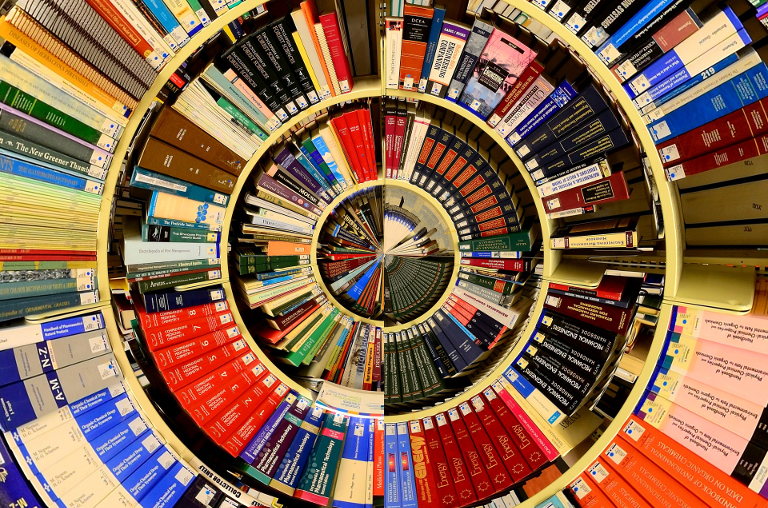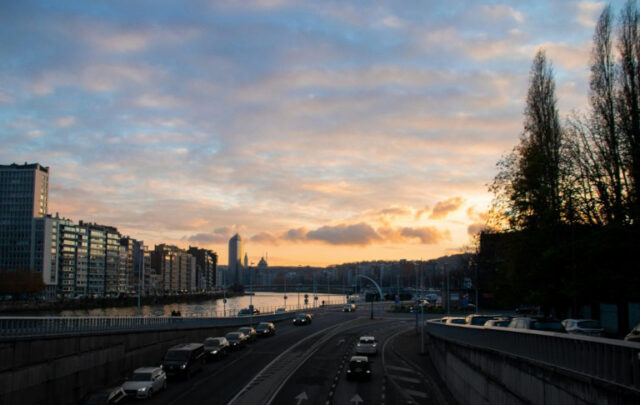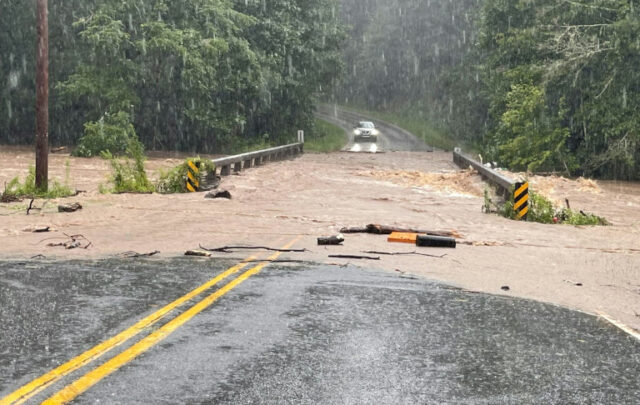This week, Professor Brannon Andersen explores some of the key challenges, potentials, and mechanisms to transition to a sustainable economy. Not easy, but as he notes, possible—if we all start rolling up our sleeves and building a new system in the cracks of the current one.
—
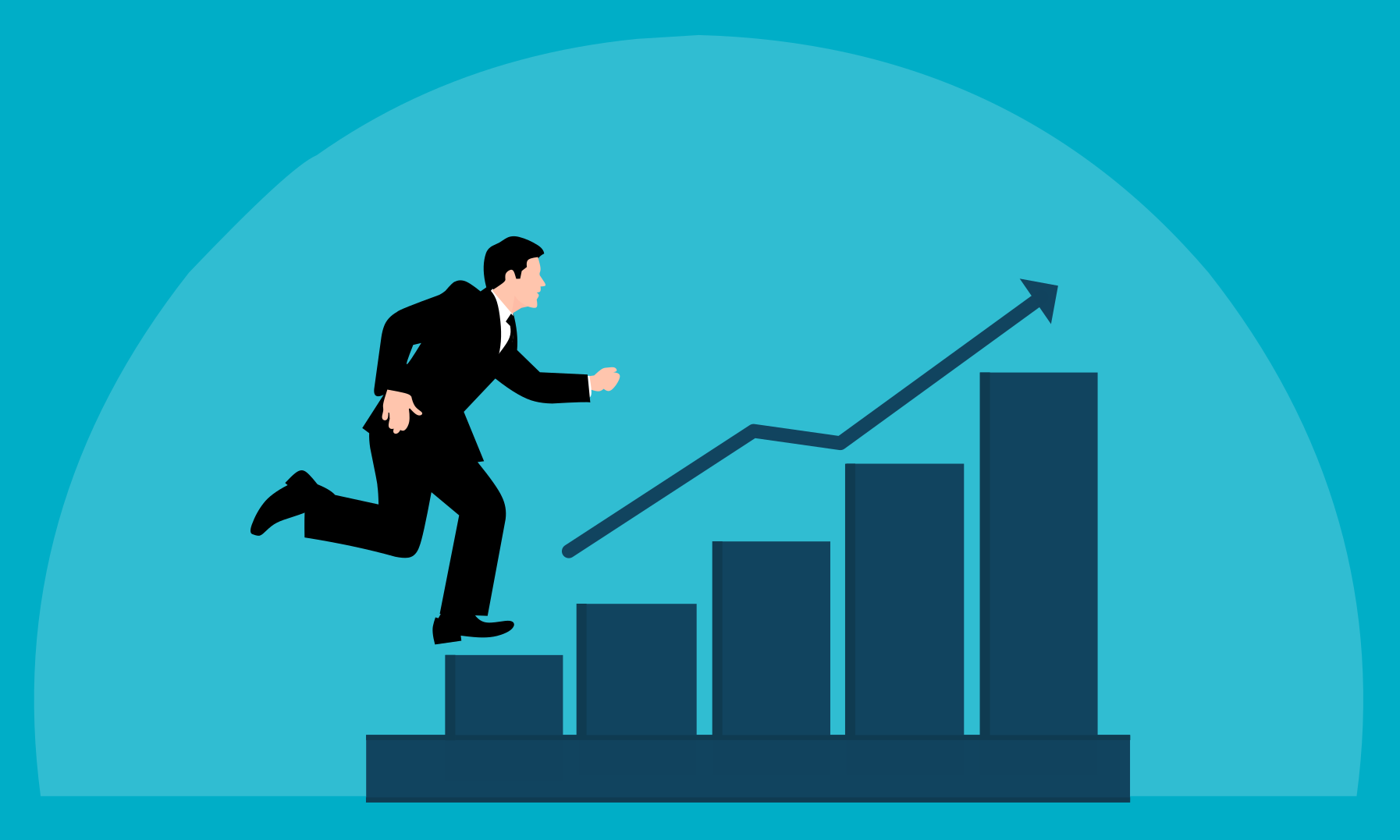
Watch out for the cliff at the end of your run! (Image from mohamed_hassan via Pixabay)
Some time back, YES! Magazine published a special issue exploring “What an Ecological Civilization Looks Like.” The articles provide examples of how we might live differently and rekindle reverence for Gaia. The articles, however, underestimate the scale and difficulty of the cultural transition required to build an ecological civilization.
The current global, neoliberal capitalist economic system, reliant on perpetual growth, is incompatible with an ecological civilization. David Korten calls it a “suicide economy” because the extraction of resources and production of waste is undermining the very foundation of civilization by destroying the ecosystems on which it depends. The many consequences are unsustainable both socially and environmentally (see for example, Trainer 2012, and Hickel 2020), and are accelerating.
So what would an alternative look like?
An ecological civilization would recognize the proper position of the economy within Gaia. The economy is a subsystem of society, and society is a subsystem of the planetary environment. Thus, the economic system must be redesigned to serve society and function within the biophysical limits of Earth. From a systems perspective, the system goal must change from exponential growth in profits at any cost to the wellbeing of the planet and people. An ecological civilization would require a radical, and rapid, change in cultural values and worldviews, as pointed out in at least three of the YES! articles.
The scale of the economy must be far smaller, local, and decentralized (Trainer 2020). The purpose of profit would shift from private accumulation to investment in public wealth. This would be a radical departure from our current materialist, consumer-based society.

At the center is the economy, nestled within society, nestled within Gaia. Shifting from private to public goods—like public libraries over Amazon—will be central to the transition ahead. (Image from geralt via Pixabay)
The End of Growth
Jen Hinton (2020) showed how a system goal of ever increasing growth in profit results in a system structure that leads to social inequality and environmental degradation as features of the system. Feedback loops in the system reinforce political capture by the wealthy elite and wage suppression of workers, increase consumption, and siphon wealth from the real economy into the elite financial economy, all to increase profits. The system overproduces material goods, then creates demand via advertising, media exposure, and perceived and planned obsolescence, all geared to increase consumption (Stuart et al. 2020). Increased production drives extraction, consumption of resources, and production of waste which drives environmental degradation. Thus, we need an economic system that is not based on growth in profits. In fact, we need to degrow the material and energy throughput of the global economy to achieve sustainability.
The scale of degrowth required is staggering. Currently, the exponentially growing global material footprint is over 95 Gt/year. The estimated sustainable material footprint is around 6-8 tonnes per person annually, or around 50 Gt/year globally. Consumption is vastly unequal—the material footprint of an American is about 30 tonnes/person/year, whereas an Ethiopian is 0.47 tonnes/person/year. Thus, we must shrink and share consumption to achieve global sustainability. Wealthy countries must reduce their material footprints by anywhere from 60-90% and their carbon footprints by as much as 95%. The magnitude of this shift to a frugal, materially sufficient, localized, low-technology lifestyle is difficult to imagine. And, as shown in the article about Portland in YES!, the globally interconnected economy makes downscaling very difficult. Reformist strategies such as taxing consumption leaves capitalism in place and is not a path to sustainability.
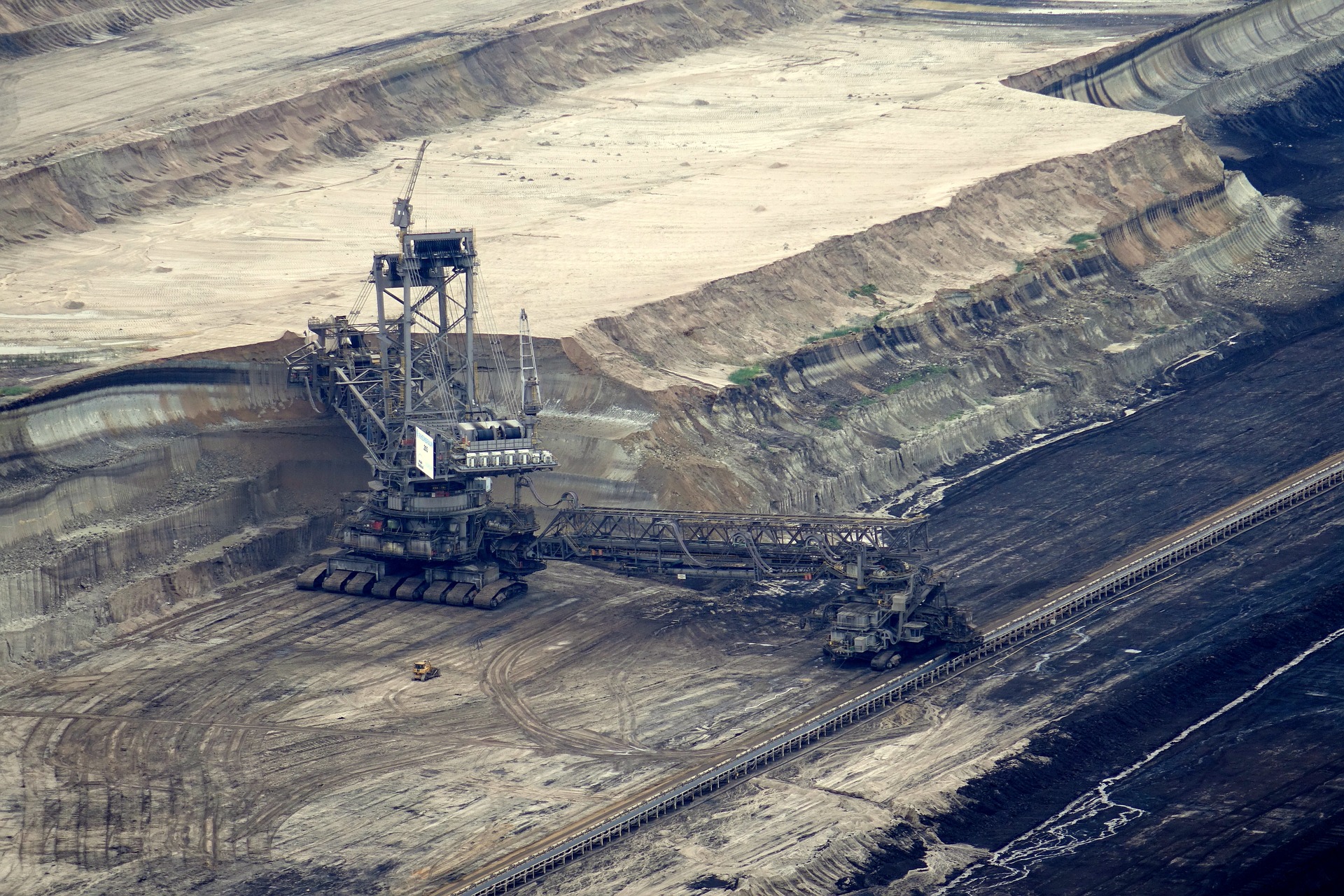
An economic system based on endless extraction is suicidal. (semevent via Pixabay)
Building the Next System
We need a major change in societal goals (the system goal) and the cultural values and worldviews that stem from a new societal goal. Trainer suggests a “world view which is basically collectivist, cooperative and concerned to nurture other individuals and the community” in which material sufficiency and public wealth would be valued over private accumulation. Healthcare, education, energy, housing, water, and so on, would be considered public goods available to all rather than private commodities designed to maximize profit (See for example, The Next System Project: Ownership futures: Towards democratic public ownership). This transition won’t be easy, of course, and the tension between the need for a “next system” and the power of the current capitalist system are captured well in the “Three Cities Switching to Life-Affirming Economies.” But, we can build the new system within the cracks of capitalism (Trainer 2020; Hinton 2020).
The Gaian Way, while one small effort, represents a needed paradigm shift for a new cultural worldview, bringing focus to humans as part of, and dependent on, the interdependent web of being. One aspect of the Gaian Way that attracts me is the focus on contentment and joy derived from interacting with nature and fellow human beings. Frances Lappé calls this “shifting the lens from the quantity of things to the quality of relationships.” This corresponds with the call for a “new hedonism” (Soper 2018) and greater emphasis on conviviality, a world in which our role is citizens with a reverence for Gaia, not consumers. We need this new worldview, perhaps founded on the Gaian Way, as a compelling alternative opposing neoliberal capitalist ideology.
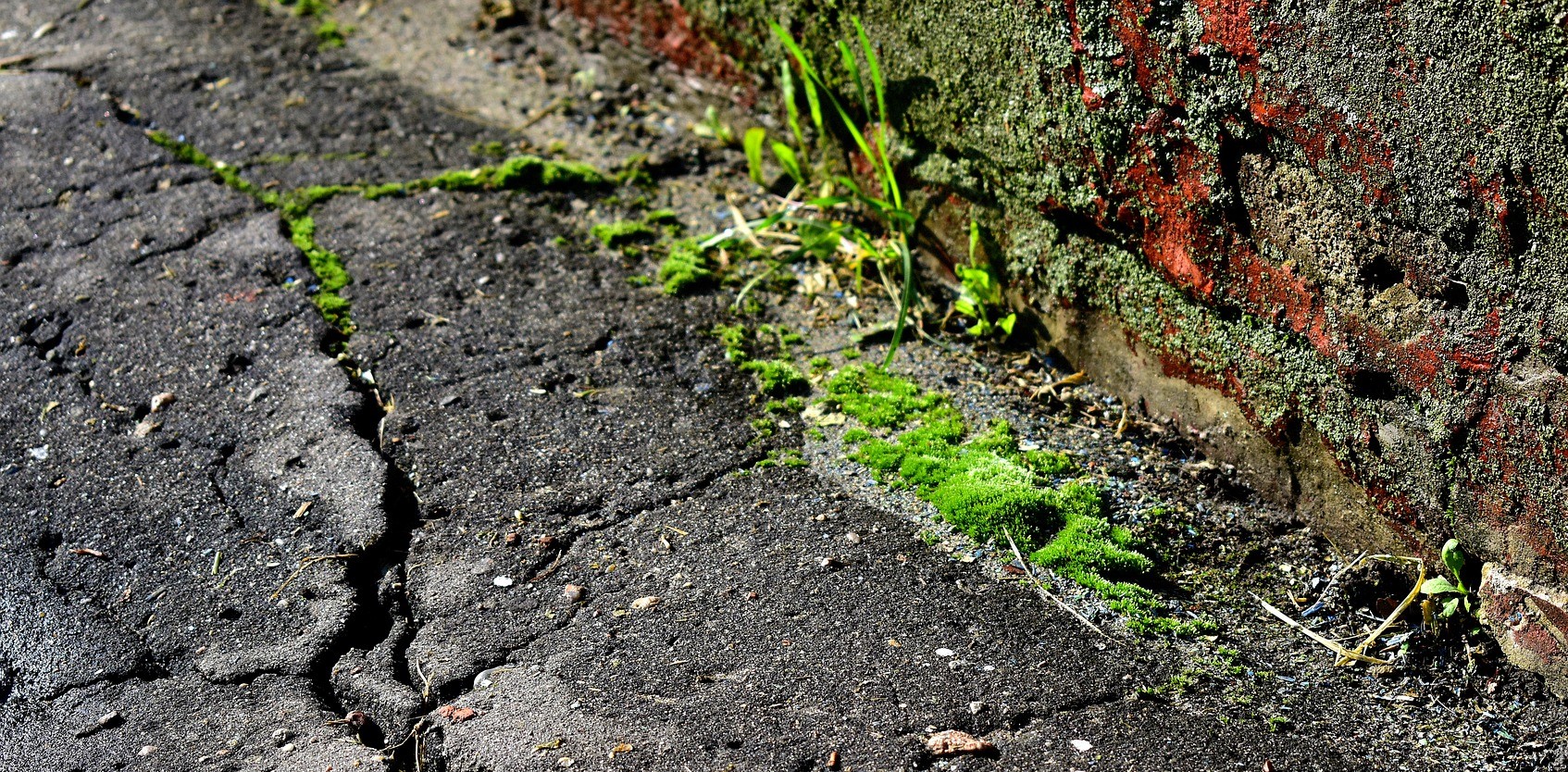
Life flourishes in the cracks. (grom900 via Pixabay)
Envisioning the Transition
The above thinkers have focused on the vision of the next system. Others have quantified what a sustainable, equitable standard of living entails. (See for example the 1.5 Degree Lifestyles report.) The scenarios suggest a sustainable global energy consumption equivalent to 1960s levels. Globally, all people could have all the necessities for a sufficient and comfortable life with electricity, hot water, air conditioning, lighting, and so on, but with much smaller and energy efficient homes (15 to 30 m2 per person—think small apartments or multifamily houses), the scale of which limits consumption. Rather than cars, we’d walk, bike, or take public transport to work and school. Intercity travel would be by bus or rail. Production of food and household essentials would for the most part be locally produced by small private firms or cooperatives that invest their profits in the community (Hinton 2020). Other industries, such as steel and pharmaceuticals, would be regional, and publically-owned. Our diet, by necessity, would be very low in animal products. Vacation travel would be limited. Appliances would be durable and repairable. A less materialistic world, rich with basic services, and more economically equal, would likely be happier and healthier (e.g., Korten 2016, Hickel, 2020, Weidmann et al. 2020). And, there is no environmental sustainability or social sustainability without racial justice in the United States, or anywhere else. This is a world of radical abundance.
Alternatives to capitalism exist and are growing (e.g., Trainer 2020). The question is how to begin developing the next system as quickly as possible to avoid socioecological collapse. As Trainer (2012) points out, “the changes can only come from the bottom via slow development of the ideas, understandings, and values within ordinary people, leading them to begin building and taking control of their local economies.” This is the hard work of building a new system in the cracks of the old (Trainer 2020). It requires a global social configuration of partnership, rather than one of domination. Although individual actions are important (e.g., eating less meat, driving less, joining a credit union), bottom up community-level change is critical. This is the ongoing “great transition” in which we all can participate.
How many people would this take? Research on social tipping points shows that only about 25% of the population needs to be actively involved to drive system change, and maybe less. This may not be has hard as it seems. Many groups are working towards building a more sustainable, ecological civilization—Sierra Club, Union of Concerned Scientists, Sunrise Movement, Black Lives Matter, Fridays for the Future, the National Urban League, Amnesty International, and many, many others. What if all of these organizations recognized their concerns were all connected and caused largely by neoliberal capitalism? What if they had a unified vision of a sustainable world? At that point, rapid non-linear social change would be possible—as might be the shift to an ecological civilization. Perhaps, just perhaps, an eco-spiritual community like the Gaian Way can help draw disparate groups together, and glue them through a love and spiritual connection to our shared and living Earth. That might be too much to ask for any community, but it is a dream worth dreaming.
—

Any dream worth dreaming is worth working for while awake. (Image by Pexels via Pixabay)


